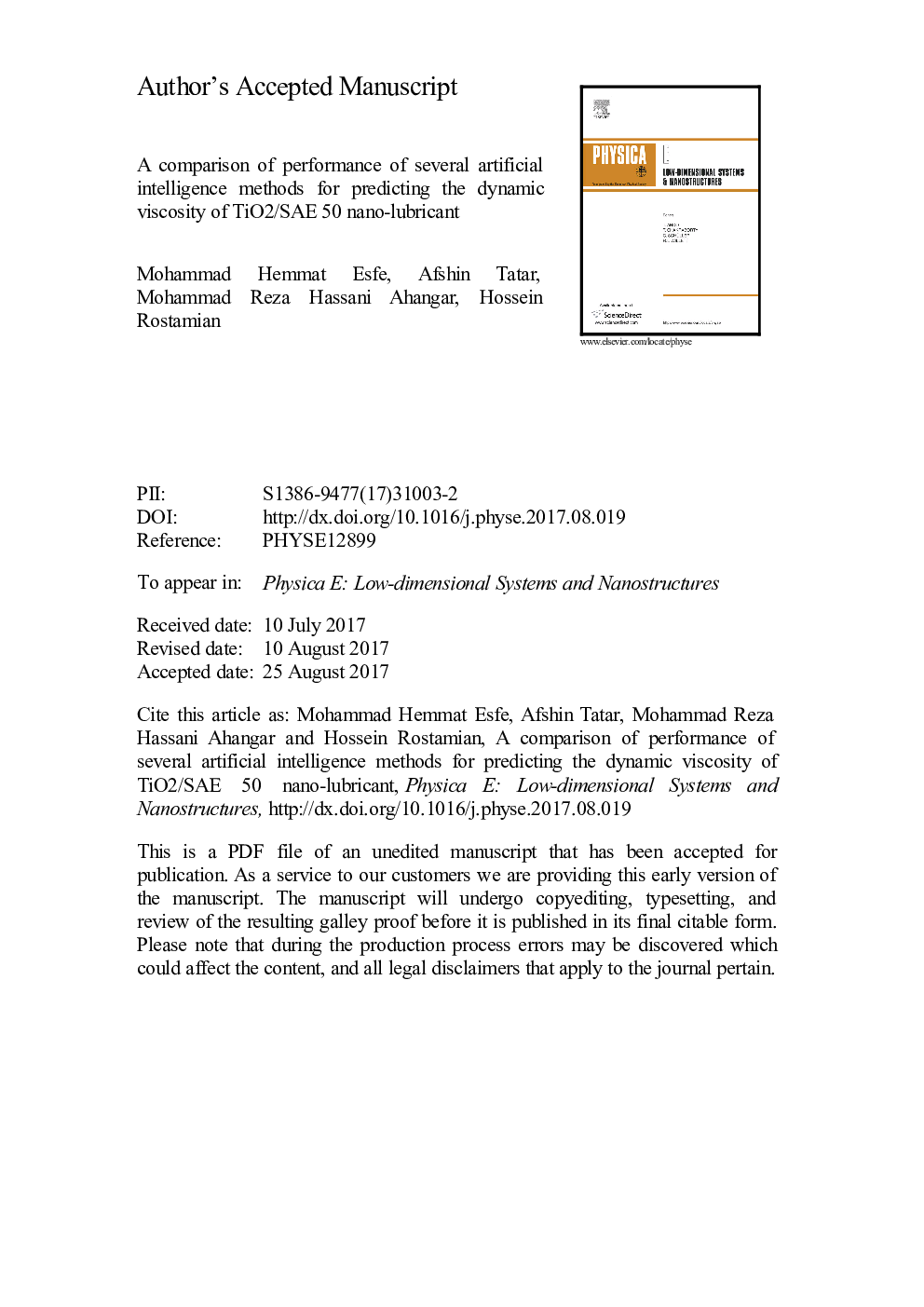| Article ID | Journal | Published Year | Pages | File Type |
|---|---|---|---|---|
| 7933886 | Physica E: Low-dimensional Systems and Nanostructures | 2018 | 29 Pages |
Abstract
Since the conventional thermal fluids such as water, oil, and ethylene glycol have poor thermal properties, the tiny solid particles are added to these fluids to increase their heat transfer improvement. As viscosity determines the rheological behavior of a fluid, studying the parameters affecting the viscosity is crucial. Since the experimental measurement of viscosity is expensive and time consuming, predicting this parameter is the apt method. In this work, three artificial intelligence methods containing Genetic Algorithm-Radial Basis Function Neural Networks (GA-RBF), Least Square Support Vector Machine (LS-SVM) and Gene Expression Programming (GEP) were applied to predict the viscosity of TiO2/SAE 50 nano-lubricant with Non-Newtonian power-law behavior using experimental data. The correlation factor (R2), Average Absolute Relative Deviation (AARD), Root Mean Square Error (RMSE), and Margin of Deviation were employed to investigate the accuracy of the proposed models. RMSE values of 0.58, 1.28, and 6.59 and R2 values of 0.99998, 0.99991, and 0.99777 reveal the accuracy of the proposed models for respective GA-RBF, CSA-LSSVM, and GEP methods. Among the developed models, the GA-RBF shows the best accuracy.
Related Topics
Physical Sciences and Engineering
Materials Science
Electronic, Optical and Magnetic Materials
Authors
Mohammad Hemmat Esfe, Afshin Tatar, Mohammad Reza Hassani Ahangar, Hossein Rostamian,
